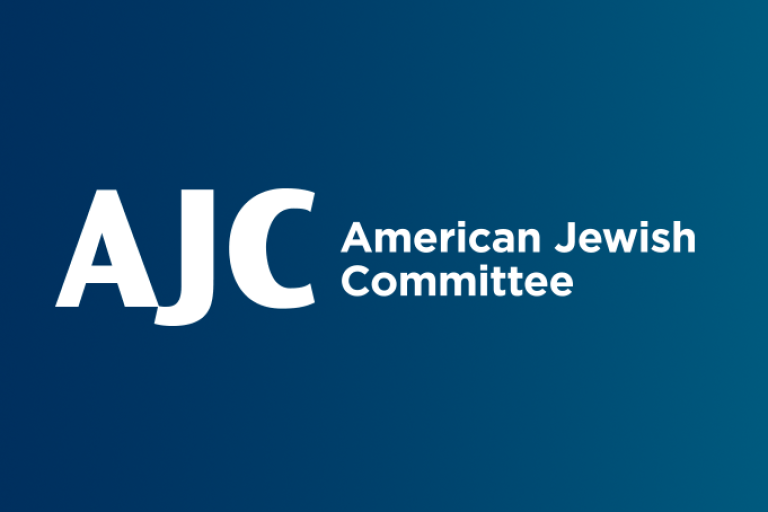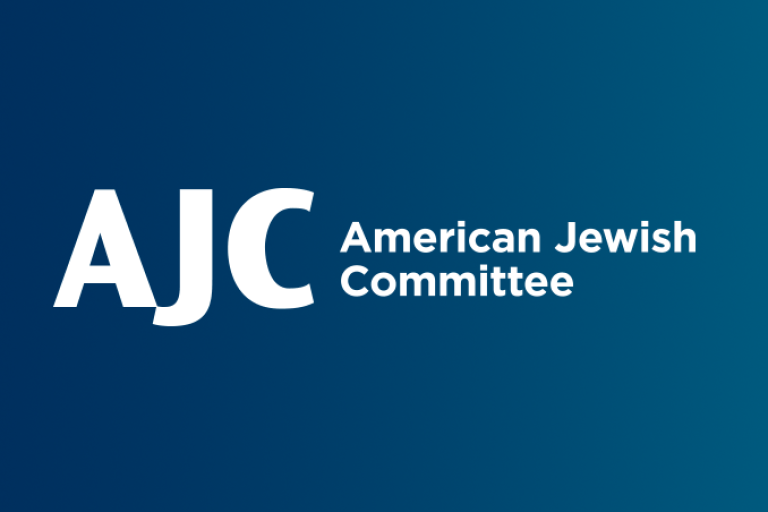January 31, 2023 — Paris
American Jewish Committee (AJC) welcomed the latest French government plan to combat antisemitism. The plan, updated by the Interministerial Delegation for the Fight Against Racism and Antisemitism (DILCRAH) every three years, included several policies recommended by AJC and was presented yesterday by Prime Minister Élisabeth Borne to an audience that included AJC leaders in Paris. The heads of 11 key ministries, including the Ministers of Justice, Education, Transportation, Higher Education, and Public Services presented the plan’s measures in their respective areas.
“DILCRAH has long recognized that antisemitism endangers all of French society, not only Jews. It is essential for the government to have a robust strategy dedicated to confronting antisemitism in all its forms,” said Anne Sophie-Sebban, Director of AJC Paris, who was seated in the first row, next to members of parliament, major politicians, and senior public servants, during the presentation.
“Significantly, for the first time, the plan includes an AJC recommendation to create indicators to measure how each component of the government’s strategy plan is working,” Sebban said.
AJC, the global advocacy organization for the Jewish people, has been working closely with DILCRAH since the French government created the agency ten years ago. As with previous DILCRAH plans to combat antisemitism in France, AJC Paris was consulted by the government in the drafting process.
In April 2015, AJC praised the French government for launching its first comprehensive plan to fight antisemitism and racism, and a year earlier for establishing the position of Inter-ministerial Delegate to Fight Racism and Antisemitism, reporting directly to the prime minister. The delegate addressed AJC’s Defining Moment for Europe conference in Brussels in May 2015.
Other key elements supported by AJC Paris in the 2023 DILCRAH strategy plan to combat racism and antisemitism in France include:
-- Every child attending school will visit a place of history or memory related to antisemitism or racism at least once. Exhibitions will be organized in schools and partnerships will be established between schools and places of memory.
-- Every teacher and school staff member will participate in a training day dedicated to understanding and confronting issues of antisemitism and racism. In addition, the government will aim to setup training sessions for all public servants.
-- To improve upon the lack of reporting to law enforcement police by victims of antisemitic and racist incidents, police will be trained to use the International Holocaust Remembrance Alliance (IHRA) Working Definition of Antisemitism to identify the antisemitic and racist motivations of perpetrators of hate crimes. (Including the IHRA definition of antisemitism in the new plan was one of the measures recommended by AJC Paris.)
-- An arrest warrant for serious antisemitic or racist offenses will be added to French law that will prevent perpetrators of such hate crimes from fleeing abroad.
-- Government ministries and other national bodies will add questions to their surveys about the perceptions and experiences of French victims of antisemitism and racism. (AJC Paris strongly recommended this measure, based on the “Radiography of Anti-Semitism in France” survey of the French Jewish and general population in 2020 by AJC and the Foundation for Political Innovation (IFOP), which found that 80% of Jewish victims of antisemitism do not file a complaint).
Prime Minister Borne’s presentation of the DILCRAH plan comes days after the Jewish Community Protection Service (SPCJ) and the French Minister of Interior issued their annual report on antisemitic incidents. In 2022, 62% of religiously motivated hate incidents targeted Jews, who comprise less than one percent of the French population. Further, 53% of the reported acts of antisemitism were directed against people, an increase of 8% over 2021.


